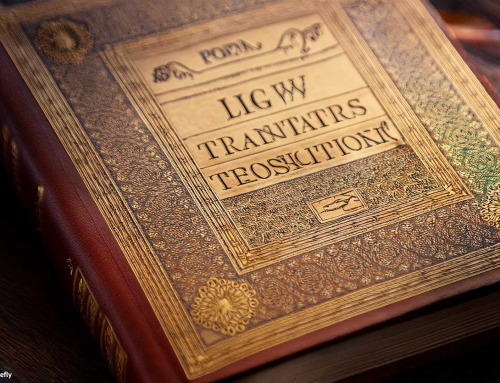Buying real estate in France
Buying real estate in France begins with a preliminary contract (compromis de vente/promesse synallagmatique de vente), in which the seller agrees to sell the property at a certain price and the buyer agrees to buy the property at that price.
The preliminary contract
The preliminary contract must contain the following information:
- Contact details of the buyer and seller
- Address of the property
- Detailed description of the property, including outbuildings and fixtures
- In the case of a condominium: Size of the apartment in square meters
- Any existing easements, e.g., right of way
- Deadline by which the main contract must be signed
- Date of key handover
- Amount of the agent’s commission (real estate agent or notary) and who is responsible for paying the agent’s commission
- Conditions precedent (conditions suspensives) – e.g., that the buyer can withdraw from the purchase if, for any reason, they are unable to obtain a mortgage
- the completion of certain work (e.g., the removal of asbestos) or the approval of a building permit for renovations to the property or for extensions
- Purchase price and payment terms, in particular which portions of the purchase price must be paid in full by which date
The signing of the preliminary contract is usually linked to the deposit of a down payment. 10% of the purchase price is standard and is paid to the notary or real estate agent, not to the seller.
Documents required for the preliminary contract
Before concluding the preliminary contract, the seller must provide the following documents:
- Report on lead in building materials (constat de risque d’exposition au plomb – CREP)
- Report on asbestos in building materials (état d’amiante) for buildings constructed before July 1997
- Report on existing electrical installations (état de l’installation intérieure d’électricité) for buildings older than 15 years
- Report on existing gas installations (état de l’installation intérieure de gaz)
- Report on termite infestation (état parasitaire relatif aux termites)
- Report on natural hazards such as flooding (état des risques et pollutions – R.N.T.E)
- Certificate on the energy performance of the property (diagnostic de performance énergétique – DPE)
- Report on the condition of the septic tank, if applicable (état de l’installation d’assainissement non collectif). The report must not be more than 3 years old
- Information or a report on the risk of infestation by dry rot (diagnostic mérule)
- Since January 1, 2020, for properties affected by airport noise, a report on noise pollution is also required.
Documents required when acquiring co-ownership
If the purchase involves co-ownership (acquisition de copropriété), such as an apartment that is part of a house, the following documents must be submitted, among others:
- Copy of the community rules (règlement de copropriété)
- Summary of information on the composition and distribution of the owners’ association, the facilities, etc. (fiche synthétique de la copropriété)
- Information on property management, insurance and maintenance contracts, and important construction work (carnet d’entretien de l’immeuble).
Legal validity of the preliminary contract
In France, a preliminary contract is legally valid and is considered a mutual promise to sell, but it only becomes binding after a 10-day period, which begins after both parties have signed the contract. When signing the preliminary contract, the buyer usually agrees to pay a down payment (max. 10% of the purchase price) into the escrow account of the real estate agent or notary.
Both the buyer and the seller can withdraw from the preliminary contract even after the withdrawal period has expired. In this case, a corresponding clause (clause de dédit) is often included in the preliminary contract, specifying the amount of compensation to be paid to the other party. If, instead, a penalty clause (“clause pénale”) has been included in the preliminary contract, this means that the seller may retain the down payment already paid if the buyer does not sign the main contract despite having signed the preliminary contract. In addition, the seller has the right to go to court and sue for performance of the contract in addition to retaining the down payment.
Main contract for the purchase of real estate
Although there is no legal requirement to do so, the main contract (contrat de vente définitif or acte authentique) is usually drawn up by the buyer’s notary, who will request the following documents: birth certificates, any marriage contracts between the buyer and seller, title deeds, land registry extract, mortgage deeds. Unlike in Germany, registration in the land register is a mere formality. In France, regional mortgage registers (Bureaux de Conservation des Hypothèques) are kept, in which both ownership rights and real estate liens are registered. The main contract can only be concluded once the entire purchase price has been paid into the notary’s escrow account. If up to 10% of the purchase price has already been paid as a down payment under the preliminary contract, this amount will be deducted from the purchase price. The keys to the property are usually handed over when the main contract is signed.
Real estate settlement
In practice, the entire purchase price is paid to the seller immediately at the notary’s office. In addition to the purchase price, fees and taxes are payable when purchasing real estate. These include the actual notary fees (les émoluments) and the notary’s expenses (les débours). The amount of the notary fees is regulated by a special ordinance and, as in Germany, is based on the purchase price of the property.
Real estate transfer tax in France
Purchase taxes mainly comprise transfer taxes (les droits de mutation), the amount of which is based on the purchase price of the property.




